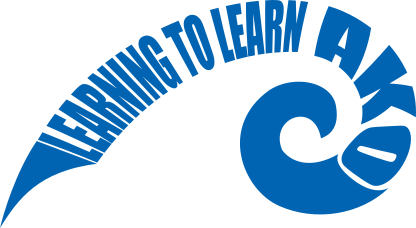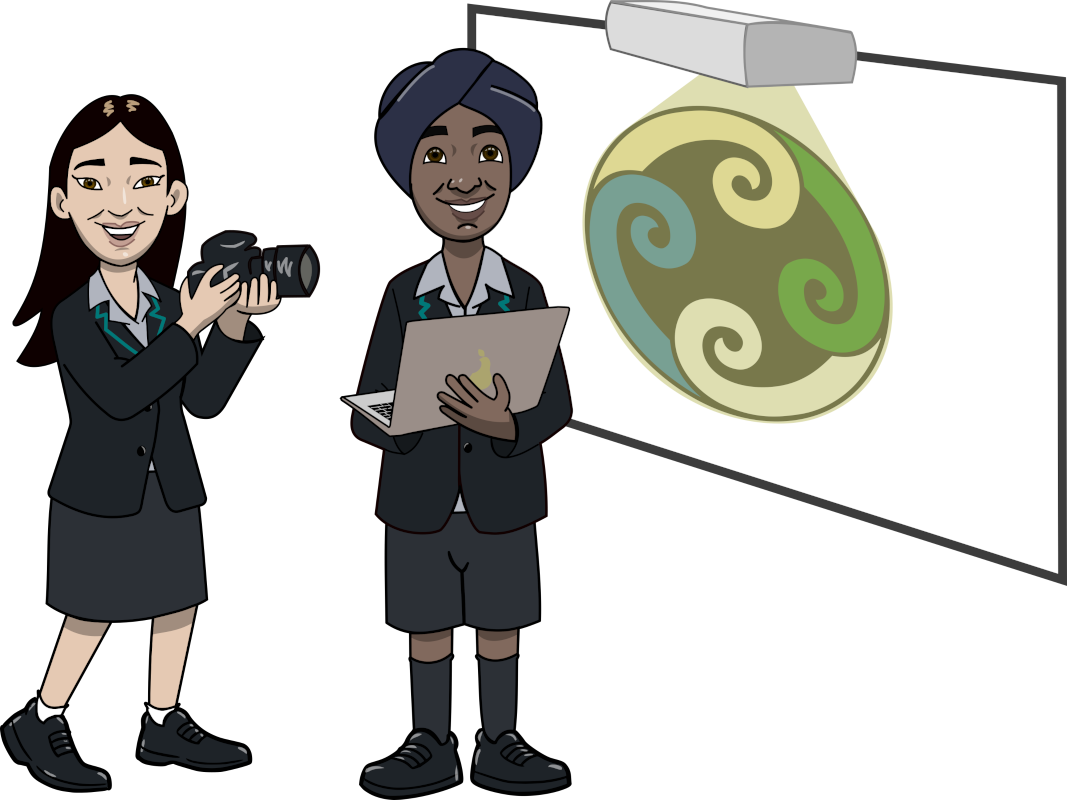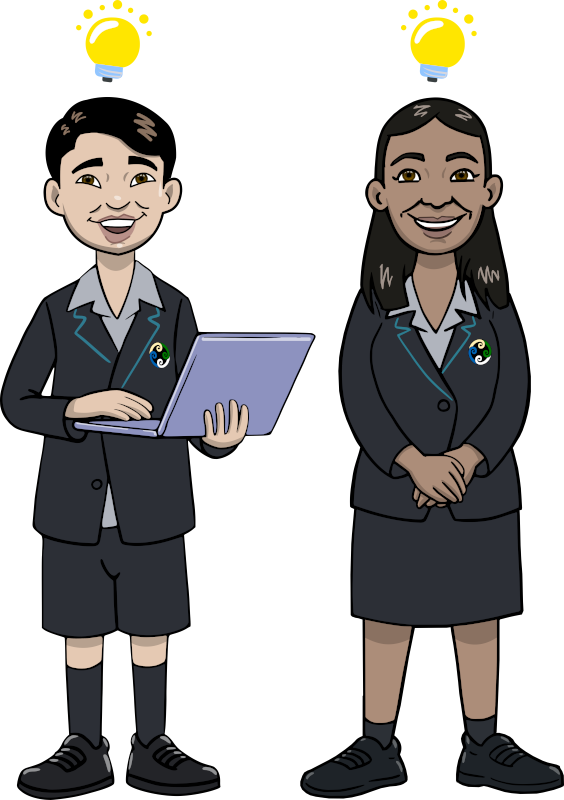10M2 English
Section outline
-
EXPLORE / TŪHURA learning intentions:
- We are EXPLORING a range of text types and their conventions through our research task, investigating how Māori place names can inform us about water safety in popular swimming places.
Kia ora 10M2
It was great to meet you last week. Thank you for taking the time to reflect on last year's learning and to set goals and aspirations for your learning this year.
We began our journey of exploring text types with an article about water safety. This week, we will review note-taking strategies and conduct a mini research project. This will help you to reflect on your skills in reading for learning, including note-taking, and selecting relevant, useful information that you can explain in your own words. It will also allow us to study a range of text types.
Success Criteria: I can/have...
- demonstrated a range of reading skills (as above) to complete a mini research inquiry
Activities:
See Google Classroom.
Homework: Please complete your Reading Plus homework tasks by Friday afternoon (4 See Readers, 2 visual skills tasks, and 2 vocabulary tasks). Aim for 80%+ comprehension. Do not complete more than 6 See Readers.
-
EXPLORE / TŪHURA learning intentions:
- We are EXPLORING a range of text types and their conventions through our research task, investigating how Māori place names can inform us about water safety in popular swimming places.
Kia ora...
Success Criteria: I can/have...
- completed my mini research task, recording all sources
- designed a short 1-2 minute presentation to share
Activities:
See google classroom
Homework:
Reading for fun: spend time reading your library book every day
Reading Comprehension Practice: please keep up with your Reading Plus tasks. See me if you have any challenges
-
FOCUS / ARONGA learning intentions:
- We are FOCUSING on analysing texts to identify their conventions (features) and comparing how conventions vary across different types of texts.
Kia ora...
Success Criteria: I can/have...
- identified conventions of a range of text types
- applied my knowledge to begin planning an information text and a persuasive text
Activities:
See google classroom
Homework:
Reading Plus tasksLibrary book reading
-
PLAN & DO / WHAKAMAHI learning intentions:
- We are applying our understanding of research skills to investigate the topic of migrant smuggling (collaborative learning with Global Studies)
- We are also demonstrating our reading comprehension skills by reading texts to understand the issues around migrant smuggling, finding specific information to meet the task requirements, and producing a written report.
See google classroom for resources and activities.
Holistic Report Links: GREAT Ako: I can explain my learning using GREAT Ako - using the GREAT Ako research process -
PLAN & DO / WHAKAMAHI learning intentions:
- We are applying our understanding of research skills to investigate the topic of migrant smuggling (collaborative learning with Global Studies)
- We are also demonstrating our reading comprehension skills by reading texts to understand the issues around migrant smuggling, finding specific information to meet the task requirements, and producing a written report.
See google classroom for resources and activities. -
Continuing our focus on text conventions, we will be moving on to poetry.
This week we will begin with reviewing our knowledge of poetry conventions and language features, then applying this refreshed knowledge to identifying and discussing these elements in a range of poems.Success Criteria: I can/have...
- completed activities to revise language features
- participated in discussions about how poets use language features to support their purposes
Activities:
See Google Classroom
Homework:
Reading Plus and Grammar H/W tasks on Education Perfect (complete all by end of term 3, 23rd JUNE).
-
Kia ora...
We are continuing our poetry study this week, before moving on to apply our understanding of language feaetures to our novel study.
Success Criteria: I can/have...
- developed my understanding of how writers use language and language features to create mood/tone
- considered how language is used to convey ideas about setting.
Activities:
See google classroom
Homework:
Reading Plus -
Kia ora...
We are continuing our novel study focus this week, focusing on language use.
Success Criteria: I can/have...
- developed my understanding of how writers use language and language features to convey information about character
- considered how language and genre conventions are use to support a writer's purpose/message
Activities:
See google classroom
Homework:
Reading Plus -
Kia ora...
Welcome back to term 2! For the next few weeks, we will be working on skills required to analyse and discuss a novel. In character analysis, you will be using your knowledge from learning in PEH about how the brain develops and how flight/fight response can impact on decision making.
Success Criteria: I can/have...
- participated in discussion activities to expand my understanding of aspects of the text
- completed individual tasks to consolidate my understanding of aspects of the text
Activities:
- In class/ on g.classroom
Holistic Report Links: feedback. You are receiving regular feedback on your work and using this to inform your next steps
-
FOCUS / ARONGA learning intentions:
- We are FOCUSING on describing and discussing key aspects of our studied written texts.
- We are FOCUSING on developing critical responses to our studies written texts.
Kia ora 10M2
Success Criteria: I can/have...
- read the novel required for study
- read the assessment document closely
Activities:
Assessment overview (see assessment instructions on google classroom)
Initial reading response activities (see class instructions)
Homework:
Reading Plus tasks
-
Continuing focus on assessment.
See classroom activities for short story focus.
-
Continuing focus on assessment.
See classroom activities for short story focus.
Please note: you will begin your first assessment discussions this week.
-
Kia ora, Year 10,
This week we continue our focus on describing and discussing key aspects of our studied written texts and developing critical responses to our studies written texts.
You will have completed half of your required assessment tasks, and will be sharing your understanding of how the authors have used language and structure to communicate their purpose/themes, and your evaluation of these, in assessment discussions.
Your assessment is now due on Friday 9th June.
Homework: please remember to spend time on your technical accuracy skills (Education Perfect) -
Kia ora, Year 10,
This week we continue our focus on describing and discussing key aspects of our studied written texts and developing critical responses to our studies written texts.
You will have completed your required assessment tasks, and will be sharing your understanding of how the authors have used language and structure to communicate their purpose/themes, and your evaluation of these, in assessment discussions.
Your assessment is now due on Friday 9th June, but our last lesson for assessment work will be Thursday 1 June.
Homework: please remember to spend time on your technical accuracy skills (Education Perfect) -
Kia ora...
Success Criteria: I can/have...
demonstrated a rage of reading comprehension strategies to critically analyse how writers use language and structure to convey ideas to their readers
Activities:
Continued.
Hand in your assessment on time!
Homework:
Complete assessment. -
REFLECT / WHAIWHAKAARO learning intentions:
- You are REFLECTING on this term's learning across all subjects by selecting topics to use for your chosen task.
- Through completing your chosen task, you will identify any gaps in your understanding of the topic, and also identify further issues and/or implications.
Kia ora…
This week you will be selecting an activity which supports your personal goals for achieving in English: preparing a speech, writing an essay, or creating a static image. See google classroom for details,
Note: these activities are designed to help you progress through each process, whether you are learning at school or at home.
This week’s focus is planning.
Success Criteria: I can/have...
chosen my activity and completed the brainstorming/ planning phase (see resources)
All resources are on Google Classroom.
-
Kia ora…
You are continuing your chosen activity which supports your personal goals for achieving in English: preparing a speech, writing an essay, or creating a static image. See google classroom for details,
Note: these activities are designed to help you progress through each process, whether you are learning at school or at home.
This week’s focus is creating.
Success Criteria: I can/have...
used my planning to DRAFT my speech/essay/static image
All resources are on Google Classroom.
-
Kia ora…
You are continuing your chosen activity which supports your personal goals for achieving in English: preparing a speech, writing an essay, or creating a static image. See google classroom for details,
Note: these activities are designed to help you progress through each process, whether you are learning at school or at home.
This week’s focus is creating.
Success Criteria: I can/have...
used my planning to COMPLETE my speech/essay/static image
Activities:
All resources are on Google Classroom.
-
Kia ora Year 10
This term, we will be supporting your Global Studies and PEH learning through our close study of both static and moving images. Our starting exploration will investigating how words and images are used in advertising for the purpose of persuading the audience.
Success Criteria: I can/have...
- explored the use of words and images in a range of print and tv adverts, identifying the audience and purpose
- evaluated the effectiveness of these features
Activities:
See Google classroom and in-class work
-
EXPLORE / TŪHURA learning intentions:
- We are EXPLORING a range of advertisements to interpret visual features and analyse how these have been used to persuade an audience
- completed a range of class activities to familiarise myself with how advertisers use images to persuade an audience
- shared my learning with my peers to gain different perspectives on how people view and interpret advertisements
Reading Plus
Holistic report - 5CsStage 2 - I demonstrate the skills to work collaboratively with others
Stage 3 - I am a motivated self-directed learner because I am curious and ask critical questions to extend my learning -
EXPLORE / TŪHURA learning intentions:
- We are EXPLORING a range of advertisements to interpret visual features and analyse how these have been used to persuade an audience
- completed a range of class activities to familiarise myself with how advertisers use images to persuade an audience
- shared my learning with my peers to gain different perspectives on how people view and interpret advertisements
Reading PlusStage 2 - I demonstrate the skills to work collaboratively with others
Stage 3 - I am a motivated self-directed learner because I am curious and ask critical questions to extend my learning -
PLAN & DO / WHAKAMAHI learning intentions:
- We are sharing our trip plans with the whānau senior leaders for approval.
- We are PLANNING our trip campaign so that we can produce visual texts (advertisements) to persuade our audience.
Paearu Angitu/ Success Criteria: This week, I can/have...
planned and written a trip proposal to share with ISU and CHU for approval
Hei Mahi/ Activities:
See google classroom for instructions and templates
Mahi kainga/ Homework:
Reading Plus

Stage 2 - I am a reliable and involved community member
Stage 3 - I am regularly and positively contributing to my communityStage 2 - I demonstrate the skills to work collaboratively with others
-
FOCUS / ARONGA learning intentions:
- We are FOCUSING on developing our campaign posters, using our understanding of how visual and verbal elements work together to position the viewer.
- We are FOCUSING on selecting verbal and visual elements which will work together to meet our campaign purpose.
- We are FOCUSING on explain our design choices, and discussing how they work together to meet our campaign purpose.
MHJC GREAT Learner Learning to Learn / Ako: Digital Literacy

MHJC Great Learner Learning to Learn / Ako: Learning and Thinking Strategy

Stage 2 - I use a range of media creation tools
Stage 3 - I have been guided to use different approaches to thinking whilst solving challenges -
FOCUS / ARONGA learning intentions:
- We are FOCUSING on developing our campaign posters, using our understanding of how visual and verbal elements work together to position the viewer.
- We are FOCUSING on selecting verbal and visual elements which will work together to meet our campaign purpose.
- We are FOCUSING on explain our design choices, and discussing how they work together to meet our campaign purpose.
MHJC GREAT Learner Learning to Learn / Ako: Digital Literacy

MHJC Great Learner Learning to Learn / Ako: Learning and Thinking Strategy

Stage 2 - I use a range of media creation tools
Stage 3 - I have been guided to use different approaches to thinking whilst solving challenges -
REFLECT / WHAIWHAKAARO learning intentions:
- We are REFLECTING on visual features in MOVING texts
- We are reviewing the use of visual techniques in short documentaries and evaluating how techniques are used to target specific audiences.
Paearu Angitu/ Success Criteria: This week, I can/have…
identified a range of visual techniques in a documentary
explained how these have a deliberate effect on the target audience
Hei Mahi/ Activities:
See google classroom for instructions and templates
Mahi kainga/ Homework:
Reading Plus
-
REFLECT / WHAIWHAKAARO learning intentions:
- We are REFLECTING on visual features in MOVING texts
- We are reviewing the use of visual techniques in short documentaries and evaluating how techniques are used to target specific audiences.
Paearu Angitu/ Success Criteria: This week, I can/have…
identified a range of visual techniques in a documentary
explained how these have a deliberate effect on the target audience
Hei Mahi/ Activities:
See google classroom for instructions and templates
Mahi kainga/ Homework:
Reading Plus
-
REFLECT / WHAIWHAKAARO learning intentions:
- We are REFLECTING on visual features in MOVING texts
- We are reviewing the use of visual techniques in short documentaries and evaluating how techniques are used to target specific audiences.
Paearu Angitu/ Success Criteria: This week, I can/have…
compared how a director will use different techniques to target different audiences
evaluated the impact of these techniques in relation to the directors' purposes.
Hei Mahi/ Activities:
See google classroom for instructions and templates
Mahi kainga/ Homework:
Reading Plus
-
This week we are applying our learning to write an essay on how a director's choices can support their message/purposePaearu Angitu/ Success Criteria: This week, I can/have…
used class discussion notes to plan my essay
ensured that my essay is completed for feedback
Have a relaxing break! -
EXPLORE / TŪHURA learning intentions:
- We are EXPLORING the structures and conventions of resumes and cover letters so that we can apply these to our own resumes and cover letters (work experience preparation)
Paearu Angitu / Success Criteria: I can/have...
explored the layout, structure and conventions of resumes (CVs) and cover letters
started to apply this to my own resume
Hei Mahi / Activities:
See Google Classroom
Mahi Kāinga / Homework:
Optional practice writing tasks on Google classroom. Read your feedback from term 3 before attempting the tasks, so that you know what to focus on. Email me when you have writing ready for feedback.
-
PLAN & DO / WHAKAMAHI learning intentions:
- We are PLANNING our resumes (CVs) and cover letters so that we can apply for work experience placements (and to use in future)
Paearu Angitu / Success Criteria: I can/have...
explored the layout, structure and conventions of cover letters
applied this to my own resume and cover letter (work experience focus)
Hei Mahi / Activities:
See Google Classroom
Mahi Kāinga / Homework:
Optional practice writing tasks on Google classroom. Read your feedback from term 3 before attempting the tasks, so that you know what to focus on. Email me when you have writing ready for feedback.
-
EXPLORE / TŪHURA learning intentions:
- We are exploring and discussing news literacy, how we find and connect with the news, and the pros and cons of these.
-
EXPLORE / TŪHURA learning intentions:
- We are exploring and discussing news literacy, how we find and connect with the news, and the pros and cons of these.
-
CAT week
-
REFLECT / WHAIWHAKAARO learning intentions:
- We are REFLECTING on the ways in which people access the news, considering the implications of social media impacts on the news, and the challenges and opportunities this creates.
-
Work experience
